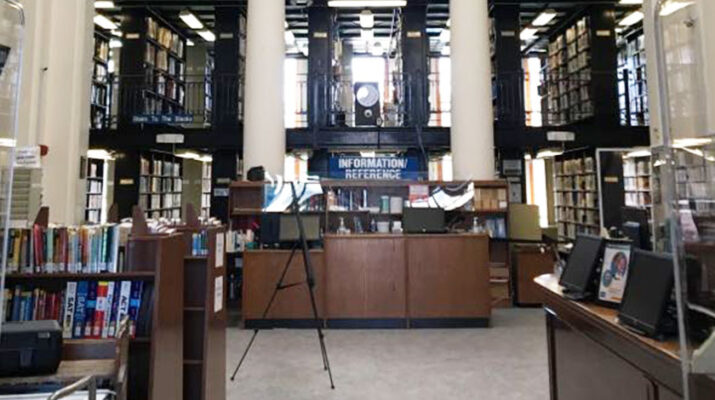The next time you reach for the remote, consider picking up a book instead
By Barbara Pierce
Getting lost in a book is a wonderful pastime. “It allows us to escape into different worlds, real or imaginary,” said Amanda Stewart, youth services director, Utica Public Library.
“Reading is crucial,” she continued. “Not only is it a skill that is needed every day, it offers so much more.”
Getting lost in a book comes with a long list of health benefits:
• Reading reduces stress: It’s a proven fact that reading reduces stress. By simply opening a book, you transport yourself to a world that distracts you from your daily stressors. It works better and faster than listening to music or drinking a cup of hot tea. Just six minutes of reading reduces stress by 68%, according to researchers.
Reading the news is probably not the best choice to reduce stress. Instead, immerse yourself in the plot of a good story, where you can escape into another world. Or read about an activity that you enjoy, a hobby, travel or cooking.
• Reading creates empathy: “Reading fiction with diverse characters creates empathy,” said Stewart. When you read, you replace your own life with someone else’s. That’s empathy, and empathy is the cornerstone of human connection. Empathy makes you a better friend, a better lover, a better employee, a better everything.
• Reading keeps your brain healthy and staves off dementia: Reading is at the top of the list of brain boosting activities that slow down cognitive decline. When we read, we use many parts of our brain. We use vivid imagery as well as our memory to follow a plot, or main idea. It’s mental gymnastics for the brain.
Research found that remaining an avid reader into old age reduced memory decline by more than 30%, compared to engaging in other forms of mental activity. Those who read the most had the fewest physical signs of dementia after death.
Consider reading aloud to your partner or your pet. The dual action of speaking and hearing oneself has the most beneficial impact on memory.
• “Reading educates, whether it’s a nonfiction book, an article, or even a picture book,” said Stewart. “Reading is a powerful tool for everyone.” Everything you read deposits information into your brain, thus making you smarter and more capable of problem solving. Who doesn’t want that?
“Everything you need for a better future and success has already been written. And guess what? All you have to do is go to the library.” This apt quote from Henri-Frederic Amiel is the first thing you see on the Little Falls Library website.
Books can change your life. Or change how you see the world. When you read a book, you can be different tomorrow than you are today.
“Often times, during a dark hour or an idle point, a book has changed my life,” said Jaime Zepeda on huffpost.com. “There are countless books that have pointed me in a different direction, or taught me a lesson. If it weren’t for the books I’ve read, I’d be a very different man today…I’d even argue I’d be less of a man.”
• Books can help you find your way through a difficult time in life: Words from authors who experienced a similar situation can lead you back onto the brighter road, can open your eyes to see things from a different perspective.
“When my dear husband died, I was lost,” said M online. “Reading ‘The Year of Magical Thinking’ by Joan Didion helped me begin to find my way out of the dark whirlpool of grief.”
“There are also many books that have helped me articulate my own emotions or thoughts, helped me find a voice,” said Zepada. “Books, especially good ones, have that sort of power. If you let them, they can change your life, serve as another compass or guide, or give you a lift when you need it most.”
• Reading brings joy: Reading is a pleasure — it ought to be. Nobody has time to read books they don’t like. Whatever you choose to read should bring you some sort of joy: a joy in having experienced it, a joy in having learned from it, or a joy in having found a new friend in it. Life is too short to read books that don’t bring you joy, or worse, that don’t matter at all.
“Reading is a powerful tool for everyone,” said Stewart.
Next time you reach for the TV remote, consider picking up a book instead.
The Utica Public Library is open from 10 a.m. to 2 p.m. by appointment, said Stewart. “You’re able to check out materials using curbside pickup. To request materials, call the library at 315-735-2279 or go online to midyork.org to put a hold on what you would like. We’ll set up a time for you to pick up the materials.”
Photo: The front lobby of the Utica Public Library. This historic building offers a wealth of books waiting to be read.

